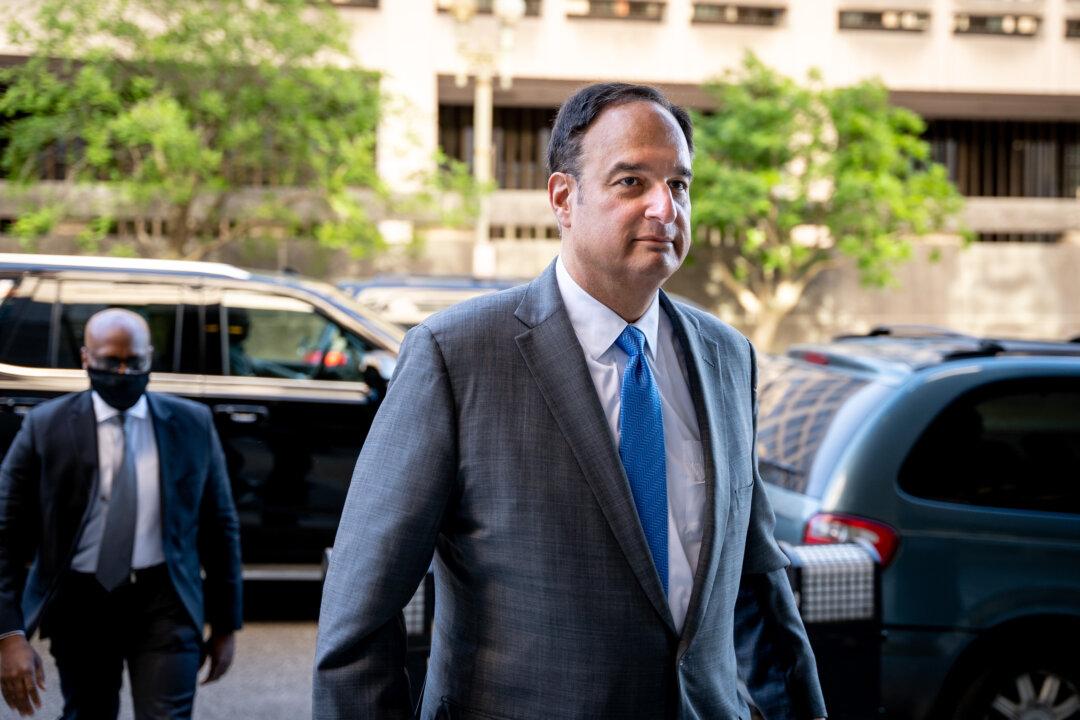WASHINGTON—A former Hillary Clinton campaign lawyer told members of Congress in 2017 that he took information about Donald Trump and Russia to the FBI on behalf of a client, even though he previously told the bureau that he was bringing the data of his own volition, jurors in federal court heard on May 25.
“I think it’s most accurate to say it was done on behalf of my client,” Michael Sussmann, the lawyer, told the House Intelligence Committee on Dec. 18, 2017.






